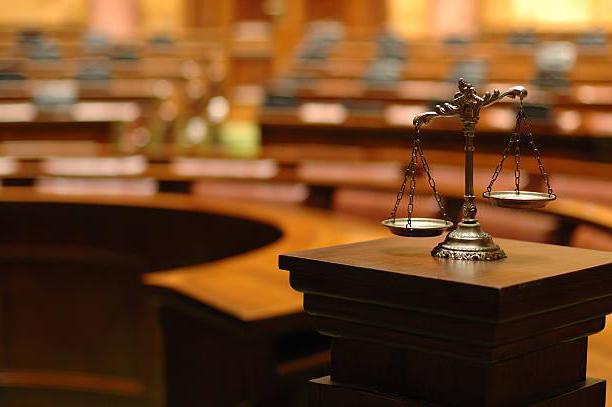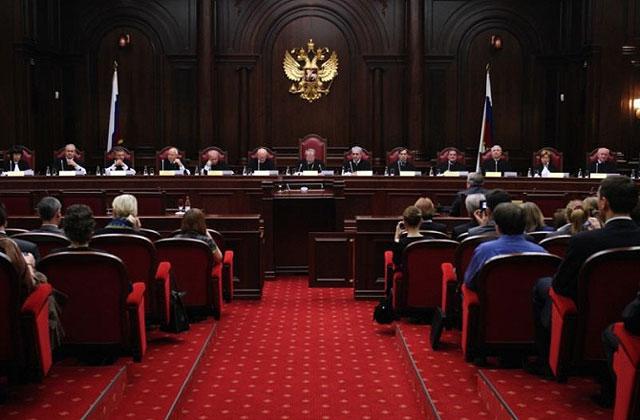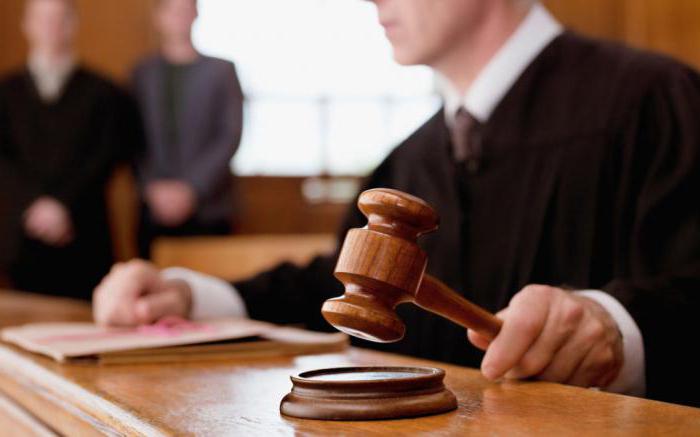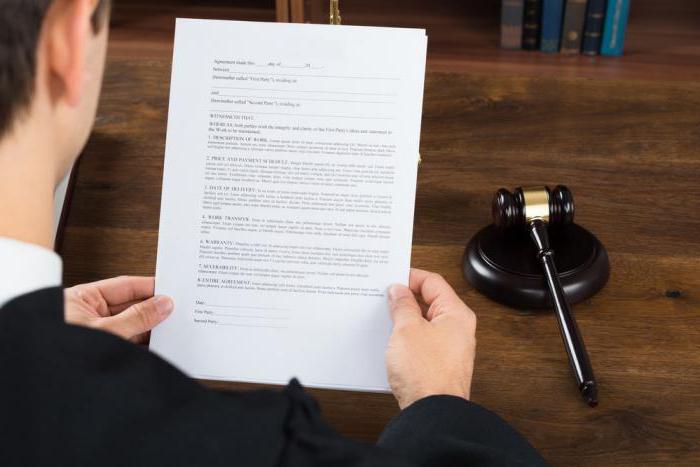In this article, we describe the powers of arbitration courts in the Russian Federation. What matters are examined here? The arbitral tribunal is a state authority that handles various disputes related to professional participation in civil circulation, in particular with regard to entrepreneurial activity, and, in addition, a number of other categories of disagreements falling within its competence under the Russian Code of Procedure.
The powers of the arbitral tribunal are of interest to many.
The main tasks of the Russian arbitration courts
In Russia, the arbitration court performs the following functions:
- It resolves disputes that appear in the framework of economic and business activities.
- Performs statistical accounting and analyzes data on its activities.
- Prevents violations of Russian legislation in the field of economics.
- Establishes and implements international relations and contacts within the framework of the procedure established by law.
The file cabinet of the arbitration court is quite extensive.
Arbitration Court Device
The internal system of the arbitral tribunal serves as its device. So, the Supreme Arbitration Court in Russia has the following device:
- The presence of a plenum of higher arbitration.
- Composition of the Presidium of the Higher Arbitration.
- Judicial board, which considers civil and other disputes.
- Judicial board dealing with administrative disputes.

Functions
Absolutely every arbitration court has its own apparatus, which performs the following functions:
- Reception of incoming documentation.
- Assisting judges in preparing cases for court hearings.
- Certificate of copies of acts and their issuance.
- Distribution of documentation.
- Verification of payment of state duty and other powers.
The internal structure of the court includes an expedition, clerical office and departments, which include judges and their assistants, as well as secretaries and specialists. In addition, this includes the judicial structures and their chairmen along with the departments of bailiffs and so on.
The powers of the arbitral tribunal will be considered below.
Arbitration Court Structure
The Supreme Arbitration Court in Russia acts as a judicial authority, which carries out the consideration of economic disputes, as well as other jurisdictional cases, exercising supervision over the conduct of a particular activity in the situations specified by federal law. This authority provides clarification regarding the jurisprudence of the use of legislation. Thus, the highest arbitration is the main court in relation to the lower federal, cassation and appeal courts.
The Federal Arbitration Court, within the framework of its duties, is called upon to consider economic and other disputes as a cassation instance for newly arising circumstances. The court of cassation acts as the parent body with respect to the appeals structure.
The Court of Appeal, as a rule, considers decisions that have not yet had time to enter into legal force. Resolution of situations is carried out within the framework of the second instance due to newly arising conditions and circumstances.
The arbitration court of a subject of Russia directly serves as a body of first instance, which examines jurisdictional disputes.
Basic powers of the arbitral tribunal

The following powers are assigned to the Arbitration Court in Russia:
- The study in the first instance of cases that are subordinate arbitration courts in Russia, with the exception of those falling within the competence of higher authorities.
- Revision on newly arisen conditions and circumstances of judicial acts adopted and entered into force by law.
- Appeal to the Russian Constitutional Court with a request to conduct an audit of a law that is being applied or is subject to execution in a case that it considers in any instance.
- Generalization and study of judicial practice.
- Preparation of various proposals for improving laws, as well as other regulatory legal acts.
- Analysis of forensic statistics.
The listed powers of the Federal Arbitration Court are carried out by means of the methods specified in the procedural legislation. They may vary at each particular level.
The correct determination of the judicial powers of the arbitral tribunal in relation to a particular case, that is, the establishment of its jurisdiction and jurisdiction to a particular arbitration body, plays a very important role. Violation of the rules regarding jurisdiction or jurisdiction in the framework of the consideration and resolution of cases may lead to the cancellation of decisions.
Jurisdiction of affairs
What is the main purpose of the arbitral tribunal?
Jurisdiction of cases is determined by Article No. 27 of the Russian Code of Procedure. To determine jurisdiction, it is necessary, first of all, to take into account the nature of the disputed legal relations and the composition of the participants. Economic disputes arising from civil or administrative and other legal relations between entities are jurisdictional cases of arbitration courts. At the same time, the subjects are legal entities, and, in addition, citizens who conduct entrepreneurial activities without registering a legal entity and have the status of an individual entrepreneur. Disputes arising from various legal relations regarding a specific property or the services provided and the work performed are recognized as economic. Disputes, in turn, may be of a civil, land, administrative, tax, customs or financial nature.
What cases are considered in the arbitration court? This is a common question.
Specific character
Jurisdiction is specific in relation to a number of cases that are taken into account by bodies of general jurisdiction in civil proceedings. So, arbitration courts hear only those cases that are directly related to their jurisdiction in accordance with federal law. General jurisdictions hear all other cases.
Capital
What cases are considered in the Moscow Arbitration Court?
The arbitral tribunal is called upon to consider economic disputes arising in the field of civil legal relations in the framework of the procedural lawsuit. In addition, other cases are considered that are related to business or other economic activities carried out by legal entities and individual entrepreneurs. Cases provided for by the Arbitration Code and other federal laws in relation to other organizations and citizens are also considered. Thus, the file cabinet of the arbitration court includes all kinds of disputes that are related to the implementation by institutions and citizens of various kinds of economic activity, namely:
- The procedure for challenging legal acts in the field of taxation.
- Currency regulation and control.
- Customs regulation and export controls.
- Patent rights and the ability to claim selection achievements. Rights to the topology of integrated circuits, production secrets, for example, know-how.Rights to tools for individualization of legal entities, goods, works, services and enterprises, along with the use of the results of intellectual work within the framework of a single technology.
- Antitrust regulation.
- Natural monopolies.
- Regulation of valuation, insurance, banking and auditing.
- The use of atomic energy.
- State control at prices and tariffs.
- Tariff regulation of institutions in the field of public utilities.

- The electric power industry, along with shared construction of apartment buildings or other real estate.
- Countering the legalization process, that is, the laundering of various proceeds of crime, and, moreover, through the financing of terrorism.
- Securities market and the activities of commercial institutions, as well as their management.
- Liquidation and termination of investment funds.
- Bankruptcy and bankruptcy.
- Placing orders for the supply of goods, carrying out work, providing services for municipal and state needs.
- Sphere of advertising and lotteries.
- Organization of activities for the sale of goods in retail markets, as well as in situations that are provided for by federal law.
Other affairs
In addition, the Arbitration Court deals with cases involving the contest of the rights and legitimate interests of the applicant in the field of economic and business activities. In addition, non-normative legal acts and decisions, as well as actions or lack thereof by state bodies and organizations that are endowed with public official powers, fall under additional consideration.
Situations

The following situations are also taken into account:
- Administrative offenses in cases where federal law considered them to be within the competence of the arbitral tribunal.
- Recovery from organizations and citizens who conduct economic and entrepreneurial activities.
- Mandatory payments and sanctions in the event that the federal law does not provide for a different procedure for their collection.
- Other cases that arise from administrative and other legal relations of a public nature in situations where their consideration by federal law is assigned to the general powers of the arbitration courts.
Among other things, issues are discussed here in the framework of a special fact-finding process that has legal significance for the emergence, termination or change of the rights of institutions and citizens in the field of economic and entrepreneurial activity.
What else falls within their competence?
The competence of arbitration courts also includes:
- Challenging the decisions of arbitration courts in the area of disputes that arise in the framework of entrepreneurial and economic activities. You can file a motion to dismiss the case in an arbitration court.
- Provision of writ of execution for the purpose of enforcing the decisions of arbitration courts on disputes that appear against the background of economic and business activities.
Arbitration authorities in accordance with Chapter No. 31 of the Code of Procedure also consider cases related to the recognition and enforcement of decisions of foreign courts in disputes that arise in the performance of economic and business activities.
Jurisdiction of Arbitration
The specific cases of arbitration include the following cases:
- Bankruptcy and bankruptcy.
- Disputes listed in Article No. 225 of the Arbitration Procedure Code.
- Disputes on refusal of state registration along with evasion of legal entities, as well as individual entrepreneurs.
- Disputes that arise as a result of the activities of depositories that are related to the rights to stocks, as well as other securities and the performance of obligations prescribed by law.

- Disputes arising in the framework of the activities of state corporations that are related to their legal status, and, in addition, the management order along with the creation, liquidation and reorganization.
- Protection of business reputation in the field of business and other economic activities.
- Other matters that arise during the conduct of economic and entrepreneurial activities in situations provided for by federal law.
Jurisdiction of the Moscow Arbitration Court
Jurisdiction of affairs is patrimonial or territorial. The generic form of jurisdiction is designed to delimit the consideration of cases among arbitration courts of various levels. The second type of jurisdiction, as can be seen from the definition itself, implies the resolution of all kinds of disputes within the framework of the territorial arbitration court, which directly depends on the location of the defendant or the plaintiff. The above distinction is related to arbitration courts of constituent entities of Russia.
Conclusion
In conclusion, it is worth noting that the Arbitration Court is endowed with a wide range of powers and is engaged in the consideration of various disputes, mainly related to the economic sphere of activity.
We reviewed arbitration courts. Composition, structure, authority are presented above.